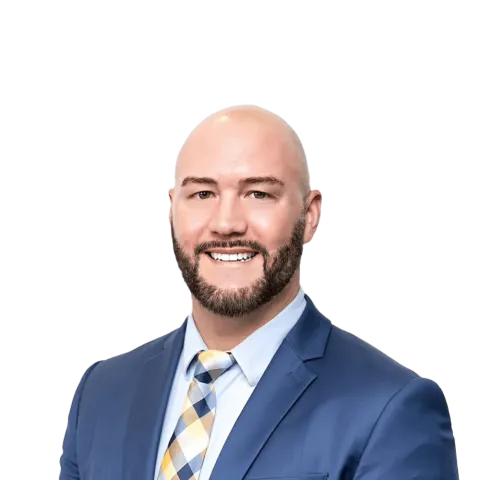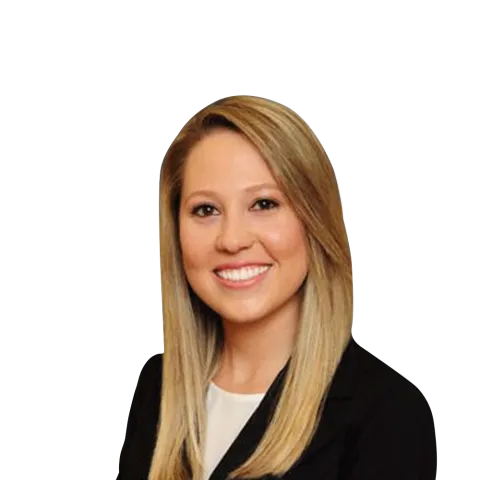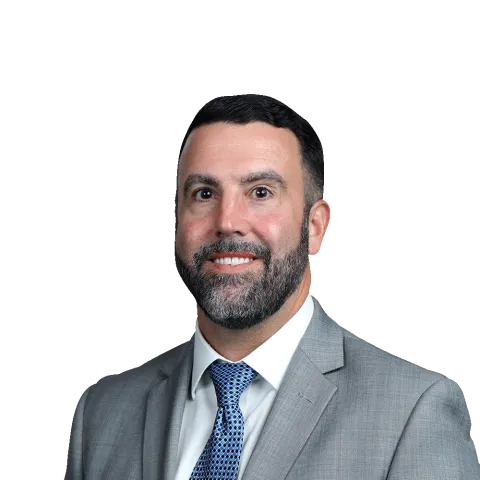Results may vary depending on your particular facts and legal circumstances. The attorney featured above is licensed in Florida. For a full list of attorneys in your state please visit our attorney page.
HOW TO COLLECT PIP INSURANCE IN MIAMI, FL
Insurers sometimes delay, underpay, or deny valid claims. We fight to get what you deserve.
Results may vary depending on your particular facts and legal circumstances. The attorney featured above is licensed in Florida. For a full list of attorneys in your state please visit our attorney page.
Car Accident PIP Insurance Lawyer in Miami
Experiencing a car accident in Miami, FL, can be an emotionally devastating occurrence. If the accident resulted in physical injuries, you might be dealing with mounting medical bills and a loss of income from missed days at work.
It can be very stressful to navigate through recovering from your injuries while dealing with excess medical costs. Serious wounds can result in lots of time spent in a physician’s office and undergoing physical therapy or other treatments to regain your health.
You may need to rely on your loved ones for more assistance than usual, requiring their help for getting to and from appointments or taking care of your children.
Under Florida state law, drivers must carry personal injury protection (PIP) insurance. PIP insurance assists policyholders with reimbursement for expenses incurred for injuries as a result of a collision.
Since PIP is no-fault insurance, the driver doesn't need to prove who was responsible for the wreck in order to collect it. However, there is a specific process that must be followed. If it is not, the provider may deny your claim.
To ensure that you receive the compensation you are entitled to, you must seek the assistance of a legal advisor who can help you.
For assistance in preparing your PIP claim and to determine whether any further legal options should be considered after a motor vehicle accident, contact an attorney with Morgan & Morgan. During a free case consultation, we’ll discuss your concerns and the facts of your accident.
What Is Personal Injury Protection (PIP) Insurance?
Personal injury protection (PIP), also known as no-fault insurance, helps cover medical expenses you’ve incurred as a result of a car accident. It can pay for treatments for back pain, whiplash, or other common injuries sustained in a collision.
In Miami, Florida, PIP insurance is required for all drivers who operate motor vehicles. Minimum coverage is set at $10,000 per person, but policyholders can elect to have a higher amount of coverage if they like.
Most states don’t require PIP coverage at all. However, if individuals decide not to include it as part of their insurance policy, they may face expensive medical bills and a loss of income that they can’t receive reimbursement for. This situation can be financially devastating.
PIP is typically an add-on for an individual’s insurance policy. It will pay benefits to the policyholder and passengers in the policyholder’s vehicle at the time of the wreck. It’s important to note that PIP does not cover property damage. Thus, you’ll need to rely on other parts of your automobile insurance coverage to repair your vehicle.
What States Require PIP Insurance Policies?
States that operate on a “no-fault” system for car accidents require PIP insurance policies. “No-fault” means that the state has a law requiring drivers to carry PIP insurance that pays compensation for injuries regardless of who was responsible for the collision.
Currently, there are 12 “no-fault” states that require PIP insurance:
- Florida
- Hawaii
- Kansas
- Kentucky
- Massachusetts
- Michigan
- Minnesota
- New Jersey
- New York
- North Dakota
- Pennsylvania
- Utah
Other states that require PIP insurance, although they do not operate according to the “no-fault” model, are the following:
- Arkansas
- Delaware
- Maryland
- Oregon
The remaining states allow their residents to decide whether they want PIP insurance coverage. PIP insurance is required in Florida, but even if it were not, including it in your Miami, FL, policy would be significantly beneficial when you are injured in a wreck and need assistance covering your medical bills or lost income.
Recovering losses through other means, such as a personal injury lawsuit, may take more time — which can be of the essence if you need immediate help.
What Does PIP Cover?
Policyholders who have been injured in a car wreck and are experiencing back pain or other injuries as a result of a collision may be eligible to receive PIP benefits if they carry them on their insurance policy.
In Miami, Florida, PIP coverage will pay benefits up to the amount that the driver has paid for on their policy, if required. Common items that PIP covers include:
Medical Expenses
PIP will cover any medical expenses that were incurred by the policyholder or any passengers that were in the vehicle at the time of the collision.
It’s common for people involved in accidents to sustain injuries causing back pain or whiplash. A thorough medical examination will be required to determine the extent of the individual’s injuries and the necessary treatment. Treatment can be expensive, especially if you don’t have health insurance. PIP can help mitigate the costs.
Loss of Income
Being unable to work as the result of injuries sustained in a motor vehicle accident can result in reduced income. This is especially true if you will require ongoing treatment that will keep you from normal work performance for an extended period of time.
Regular living expenses, such as rent and food, can add up quickly if you don’t have access to your wages. PIP can assist by providing you with replacement compensation for the time that you are out of work.
Funeral Expenses
If the policyholder passes away as a result of the car accident, PIP can cover the funeral, burial, and cremation expenses. While PIP is most commonly associated with medical costs and lost wages, collisions may be more severe and result in loss of life.
If the deceased person didn’t carry life insurance, the PIP policy could be very helpful in paying for funeral expenses.
Survivors’ Loss
Dependents of a policyholder killed in a car accident may suffer from the loss of their loved one’s income, alongside the pain and suffering that a family member's death brings.
PIP can help alleviate financial worries directly after a collision that results in death. This can be beneficial until the policyholder’s estate is finalized and any assets are passed through to beneficiaries.
Essential Services
A policyholder who has experienced a severe injury as the result of a collision may not be able to perform regular tasks. Chores such as cleaning the house or taking care of young children can be infinitely more difficult for someone suffering from pain and injuries sustained in a collision.
PIP can pay for outside help to perform tasks such as housecleaning or childcare, alleviating some of the burdens from the crash victim.
What Is Not Covered by PIP?
Personal injury protection won’t cover any of the below:
- Damage to you or someone else’s vehicle or property
- Injuries to individuals who aren’t in your vehicle when the wreck occurs
- Wounds sustained while committing a crime in the vehicle
- Injuries incurred when you are operating your car in a taxi situation
Other parts of your automobile insurance policy may cover these circumstances. For example, your bodily injury policy should cover the other driver’s injuries if the accident was your fault. Your property damage liability coverage should cover repairs for another driver’s vehicle.
If you have difficulty receiving compensation for something you believe you should be entitled to, reach out to an experienced attorney at Morgan & Morgan for assistance.
What Types of Injuries Are Commonly Sustained in Car Accidents?
Motor vehicle accidents can result in a number of different injuries. It’s common to not realize that you’ve sustained an injury until a few hours or days have passed following a wreck.
The shock of an accident can cause an increase in adrenaline, leaving you in a state where you don’t feel the pain. This is especially true for back pain or whiplash injuries.
Types of injuries commonly experienced in an accident include:
- Spinal cord or back injuries
- Whiplash of the neck or back
- Concussions
- Broken arms, wrists, legs, or ankles
- Lacerations
- Internal organ damage or bleeding
It’s important to see a physician as quickly as possible after a car accident. They will be able to take X-rays and examine you for wounds. A doctor will also provide you with a full medical report, which will be necessary if you decide to file a PIP claim.
How Do I Collect PIP Insurance?
To collect PIP insurance, you must have a PIP policy and you must file a claim. You’ll need to report the accident as quickly as possible to your insurance provider. This starts the process and assists you in obtaining the funds you need in a timely manner.
The insurance company should compensate you for monetary damages incurred as a result of the wreck. Damages that you can receive under a PIP policy include medical expenses and lost wages. You may be entitled to other benefits as well, depending on your policy.
The amount that you can receive is limited to the threshold that you selected for your coverage. Thus, if you elected a PIP policy with a $50,000 limit, that is the maximum you can recover for your damages.
If PIP doesn’t cover all of the expenses you expect to incur as a result of the accident, you may need to seek other avenues for reimbursement. A qualified personal injury attorney at Morgan & Morgan can assess your legal options.
What Is the Maximum Compensation I Can Receive Through a PIP Policy?
PIP policies typically impose either monetary or verbal limits. The type of limits that they use are determined by the state’s laws. If the state operates according to monetary limits, the victim of the motor vehicle accident may recover compensation for medical expenses, lost wages, or other similar items up to the maximum amount of their policy.
In states that operate according to a verbal limit policy, it may be more difficult for a victim to receive compensation for their injuries from PIP. Verbal limitations require that injuries be catastrophic, result in severe disfigurement, or be significantly long-lasting to qualify for reimbursement under a PIP policy.
100,000+ Five Star Reviews
The reasons why clients trust Morgan & Morgan.
Results may vary depending on your particular facts and legal circumstances. Based on select nationwide reviews.
Our Results
How It Works
Unsure what to do next? With 35 years of experience, our personal
injury lawyers will guide you every step of the way.

Contact Us 24/7 - It’s Free
Start your claim

Meet your dedicated attorney
Meet the attorneys

We fight for more
Learn more about the case process
Results may vary depending on your particular facts and legal circumstances. The attorneys shown in these photos may not be licensed in your state. To find an attorney licensed in your area, please visit our attorney page.
Local Care
Backed by America’s Largest Injury Law Firm.
$30 Billion
Recovered for clients
nationwide700,000+
Clients and families
served1,000+
Attorneys across
the country1
Click may change your life
The attorney featured above is licensed in Florida. For a full list of attorneys in your state please visit our attorney page.
Results may vary depending on your particular facts and legal circumstances.
Learn More
Injured and not sure what to do next?
We'll guide you through everything you need to know.
What If My Insurance Provider Is Uncooperative?
In some cases, insurance providers may be uncooperative, especially if you don’t submit full documentation related to your claim. Insurance adjusters are busy people, and if they believe your claim is frivolous or doesn’t have the information required to be approved, they may deny it altogether.
That is why it’s important to have the assistance of a qualified attorney who can help you to assemble the required paperwork you need to have your claim approved. You want to be able to receive the appropriate care to recover from any injuries, such as concussions or back injuries, that you are suffering as a result of the collision.
An attorney can also handle discussions with the insurance company on your behalf. Their assistance will include providing evidence of your medical treatment and related expenses, assembling evidence of the accident, and providing copies of the police report.
Will I Need to Pay for Representation Upfront?
Morgan & Morgan works on a contingency fee basis. This means that there are no upfront costs associated with your representation.
During your case review, we will look at the circumstances of your accident and the injuries that you have sustained as a result. If we decide to accept your case, we will not collect any money unless you do. Our earnings are a percentage of the compensation you receive from your insurance provider.
What Can I Do to Recover Compensation from PIP?
The knowledgeable personal injury attorneys at Morgan & Morgan can help you to prepare all of the documentation required for your PIP claim.
Common evidence required may include police reports, evidence of your injuries and their associated treatment, wage statements from your job, and statements from individuals who witnessed the crash.
Submitting a PIP claim requires careful attention to detail. It’s not uncommon for insurance adjusters to deny reimbursement for trivial technicalities.
To ensure that your case receives the attention that it deserves, reach out to our qualified legal team for a free consultation. We will review your case and inform you about the best steps to move forward in the process. Remember, we don’t receive any compensation unless you do. We work to ensure the best outcome for you.
























